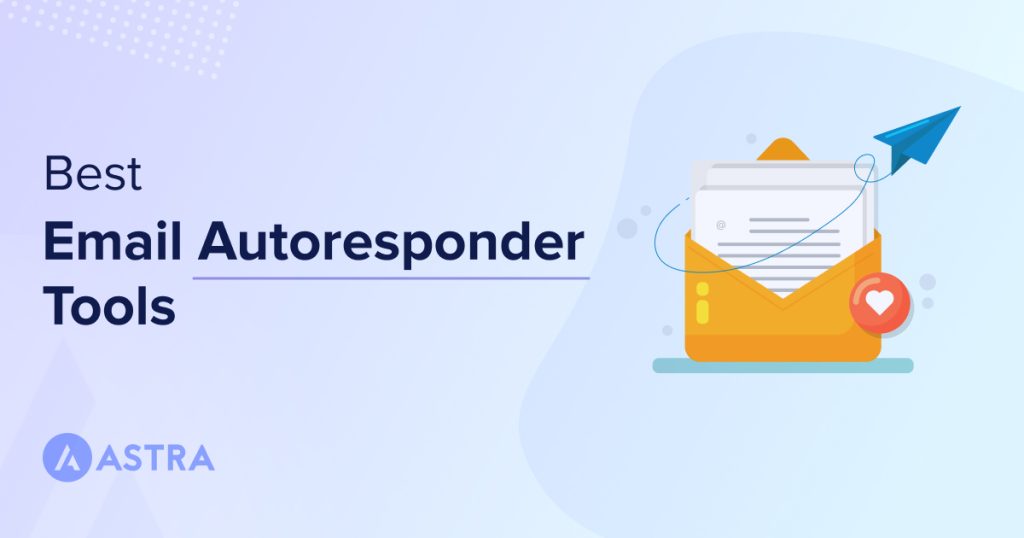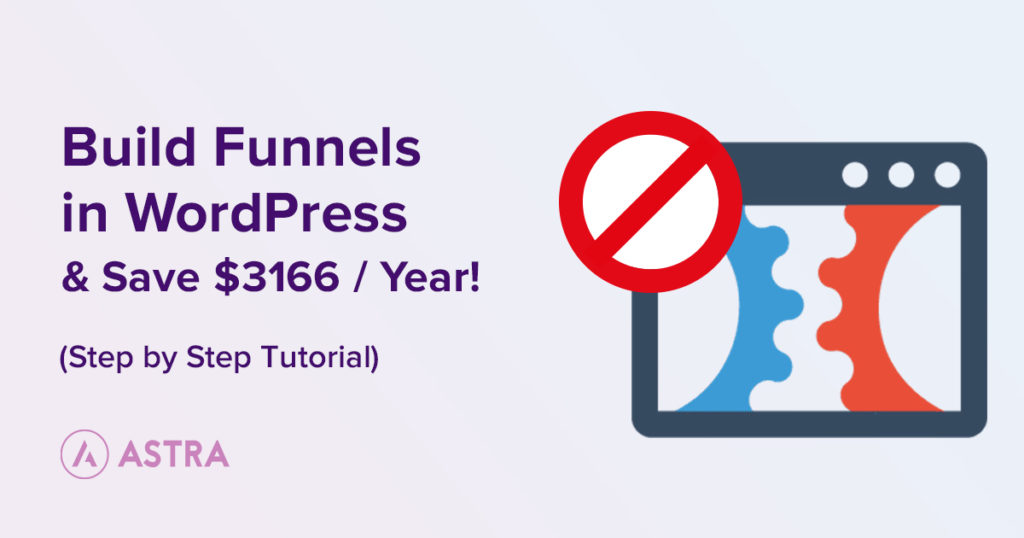Autoresponders are essentially robots that send emails for you and are one of the single best tools you can use on your website.
While they can seem complex and time-consuming to set up, the dividends will pay off for months and years to come.
In this post, we’ll first explore the different kinds of autoresponders and why you should learn how to use them. Then, we’ll examine 23 of the best email autoresponder tools from around the web.
Finally, we’ll use MailPoet, a free email marketing plugin, to set up a simple welcome email.
Ready to create your first email autoresponder?
What Is an Autoresponder?
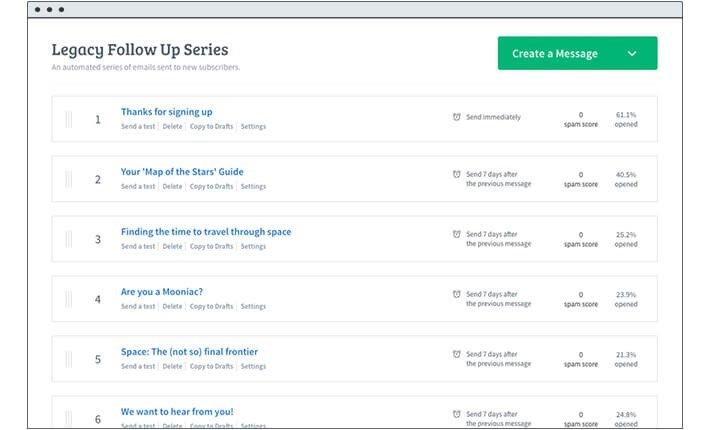
Before we get started, you might wonder what an autoresponder is. Autoresponders are a key aspect of communicating effectively via email, so it’s important to understand what they are.
The word doesn’t have a precise definition and is used in different ways depending on who you ask.
In general, we can say that an autoresponder is an email (or series of emails) that are sent automatically by a software program, rather than manually by a person.
Let’s use an example to clarify this distinction.
- If you use Gmail and send an email to a friend telling them about your trip to Italy, this email is sent manually. It only goes out once and you need to personally push the Send button to send the email.
- If you write a post on your blog about your trip to Italy, publish it, and then have it sent to your email subscribers automatically, this email is using an autoresponder.
Different Kinds of Autoresponders
There are many different kinds of autoresponders. Let’s cover just a few of the most useful ones.
Post Notifications
As the name suggests, these autoresponders send your posts (or other new content) inside an email. They’re a great way to keep your readers updated with your latest content.
You can choose to send post notifications immediately, hours, days, or even weeks after the post is published. Many tools also allow you to send once a week or once a month, which is useful if you want to have a “weekly review” post.
Welcome Emails
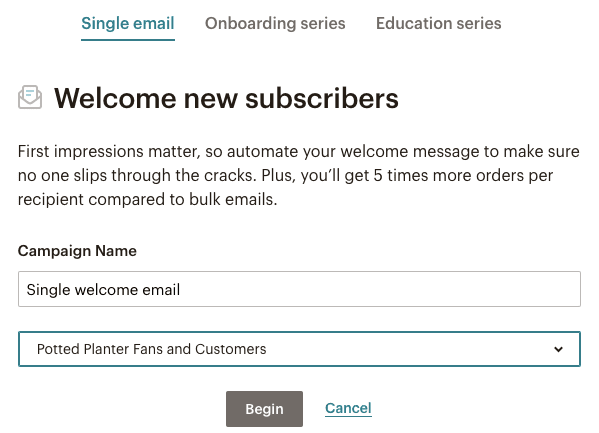
Want to welcome new subscribers? Then you want to use a welcome email. These emails go out automatically when someone joins your email list.
In WordPress, you can also send welcome emails to new users. These can be targeted at particular user types (Subscribers, Members, etc.)
Onboarding and Online Courses
These types of emails are similar to Welcome Emails, except that they are usually a series of 3 to 5 emails, rather than just one.
Onboarding emails are designed to help new users feel more comfortable. By sending an email once per day or every few days, you can help teach them about the ins-and-outs of your product, service or company.
Email-based courses also work this way. When the subscriber joins the course, they’ll receive a series of educational emails, each with a span of days or weeks in between.
Abandoned Cart Emails
If a customer adds a product to their cart but doesn’t purchase it, this is called an abandoned cart. An abandoned cart email, then, is an email that is automatically sent to customers that don’t finalize their purchase. Most eCommerce solutions, like WooCommerce, offer abandoned cart email features.
These are a great way to capture lost sales.
In fact, up to half of customers will finalize their purchase if prompted by an abandoned cart email. That makes them really important to implement for any eCommerce business!
Re-engagement Emails
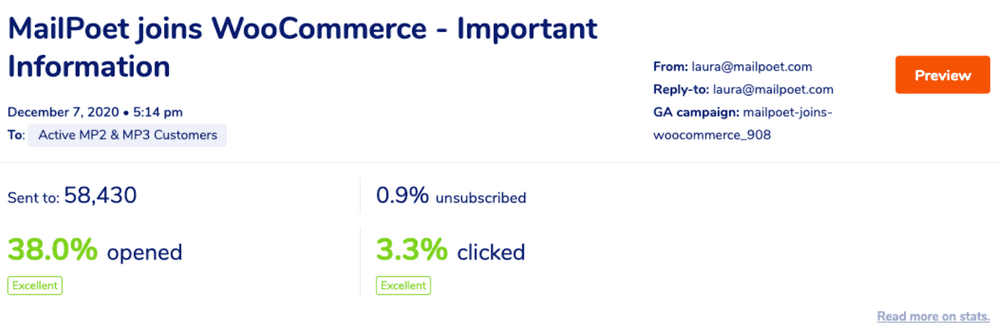
Opens and clicks are two of the most popular email marketing metrics. While it’s nice to have a lot of subscribers on your email list, it doesn’t mean much if they never open your emails or click on any links inside them!
Re-engagement emails are one solution to this problem. These emails can go out to any subscribers that haven’t engaged with your emails in a while.
Usually, these emails include questions like “What can do better?” or “How can we make this email newsletter more interesting to you?” This makes them a great option for anyone looking to build a stronger relationship with their subscribers.
Why Should I Use an Autoresponder?
Setting up an autoresponder can seem like a difficult, time-consuming process. So why should you bother?
It Saves Time and Energy
Autoresponders save you from having to do a lot of work. This is especially true if you have a large number of email subscribers, customers, or students.
Imagine having to manually send out individual emails for every single lesson of an email course! You’d spend all of your time emailing people, not actually creating the educational content.
Once you create an autoresponder, it’s mostly set it and forget it. You don’t need to worry about sending the emails, as the plugin (or other tool) will handle it for you.
All you need to focus on is creating the content itself — and that is a true time-saver.
It Increases Your Revenue
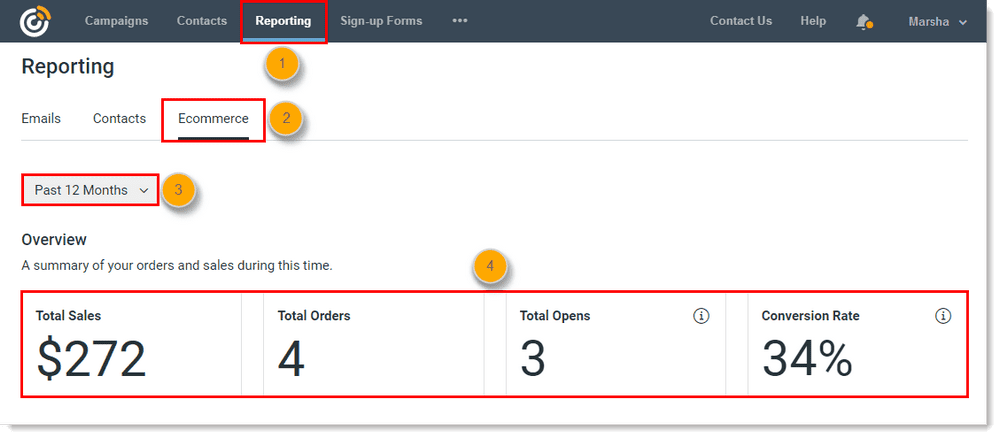
Using abandoned cart and re-engagement emails are an often overlooked eCommerce tactic. In combination with other email marketing tools, they can be extremely powerful.
These two email types re-engage your subscribers and remind them about your business. In our fast-paced world, people are busy, so it’s no surprise that sending them a reminder is effective.
It Builds a Stronger Relationship With Your Readers
Finally, autoresponders help build a stronger connection with your subscribers. By sending a welcome email, you immediately open a dialogue with a new subscriber and keep them focused on your content.
Likewise, with re-engagement emails and onboarding emails, you give subscribers the opportunity to give feedback. And more feedback is never a bad thing!
The 23 Best Autoresponder Tools
Ready to set up your own autoresponder? Let’s take a look at the best 19 plugins and other tools that can help you on your email marketing journey.
1. Constant Contact

Constant Contact is an email marketing company that has been around for a long time – since 1995 in fact! As you can imagine, they have just about every email marketing tool you can think of.
You can create four different types of emails in Constant Contact:
- Welcome emails that greet your new subscribers
- Birthday, anniversary, and other date-based emails
- Automated email series that are triggered by certain events
- “Resend” emails to subscribers that don’t open your emails
2. HubSpot
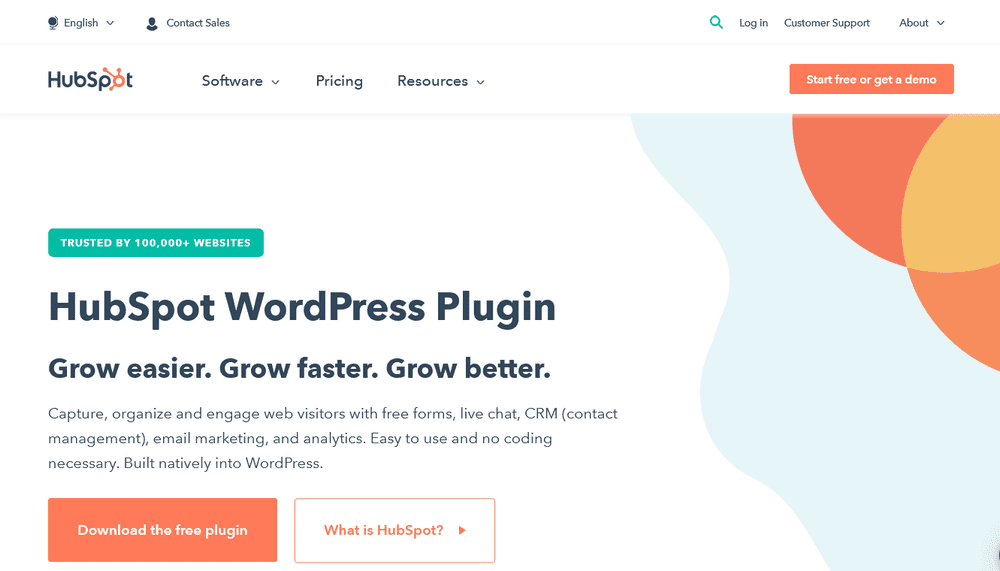
HubSpot is a large software company that makes a ton of different marketing software tools.
One of these tools allows you to create automatic emails based on certain events. These events include when someone sends a live chat message, fills out a form, signs up to an email list, and other situations.
You can view all of these messages (and stats about them) inside HubSpot’s CRM software, which makes it easy to manage everything in one place.
In terms of building the actual emails, HubSpot has an intuitive drag and drop interface. There are also more than 20 pre-designed templates.
3. Omnisend
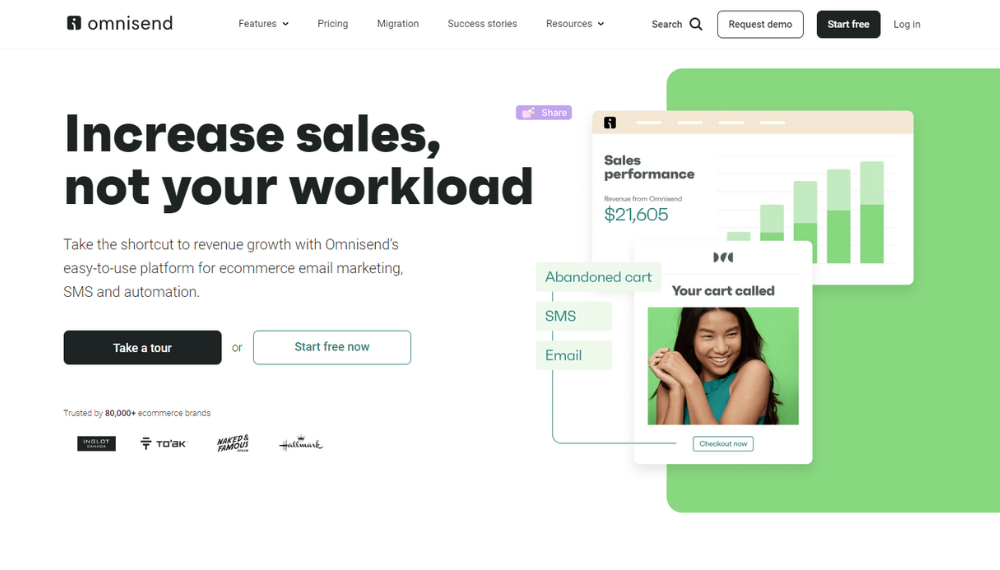
Omnisend is an email and SMS marketing automation platform that helps eCommerce stores sell more while creating loyal customers through email, SMS and push notifications.
Omnisend is pretty intuitive to use, with an email builder, form builder and workflow builder that are all drag and drop and allow you to customize literally everything. You can also use advanced parameters in your autoresponder workflows, adding conditional splits and various journeys for different customers.
4. ActiveCampaign
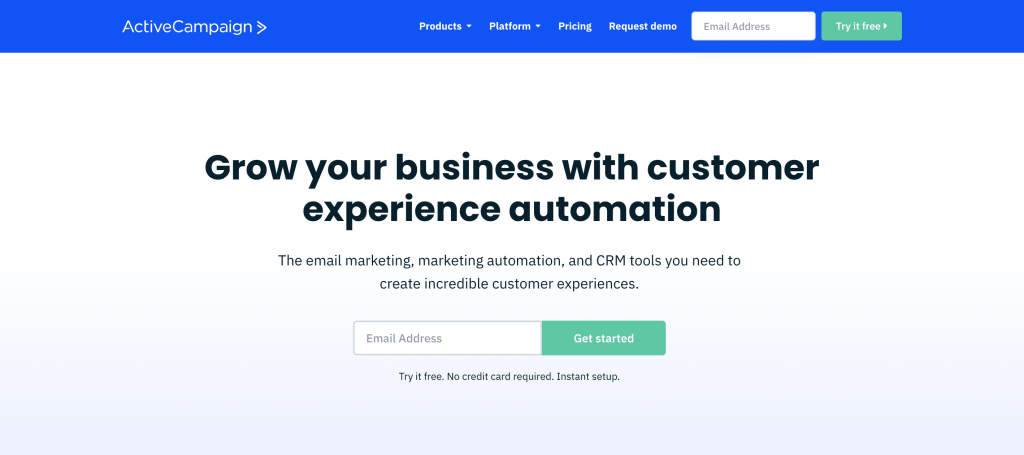
ActiveCampaign is one of the greatest email autoresponder solution for a variety of reasons.
For starters, it provides a comprehensive range of tools, such as powerful automation capabilities, email personalisation, and segmentation choices, allowing organisations to develop highly targeted and personalised email campaigns.
Second, it has an easy-to-use interface and drag-and-drop editor, allowing users to create aesthetically beautiful emails without any coding experience.
Furthermore, ActiveCampaign readily interacts with other major marketing tools and platforms, allowing you to streamline your marketing efforts and achieve higher efficiency in your email marketing campaigns.
5. Email Subscribers & Newsletters
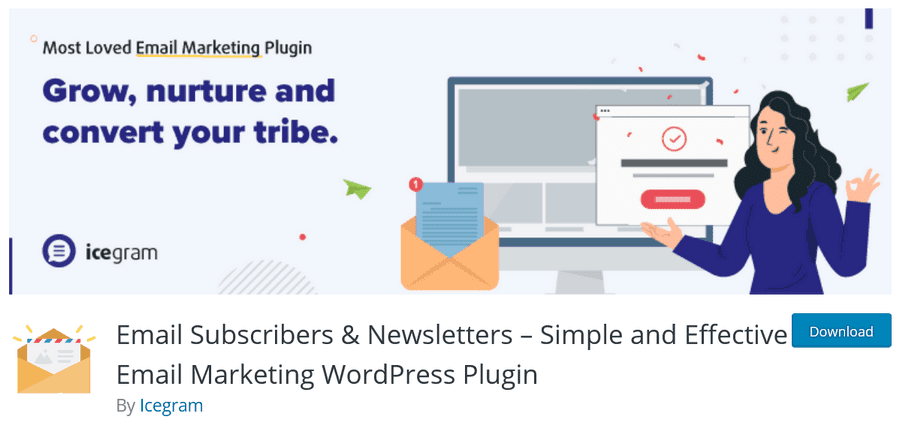
This simple, free plugin is full of features. You can collect emails, send automated new blog post notifications, and send regular broadcast emails.
There are no limits on the number of autoresponders or post notification emails that you can create. It also has automatic list cleaning, which is helpful for removing subscribers that never open your emails.
6. WPForms
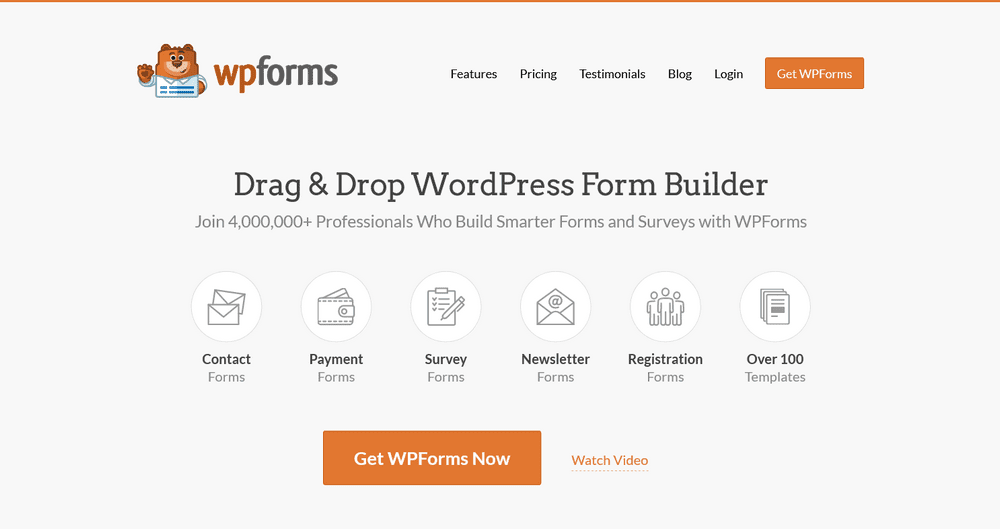
WPForms is another very popular form plugin. With it, you can create a variety of forms, like contact forms.
It’s easy to set up notification emails, confirmation emails, and other form-based autoresponders. If you primarily want to send automatic emails to people that fill out a form (for example, signing up for a new course), then give WPForms a try.
7. Ninja Forms
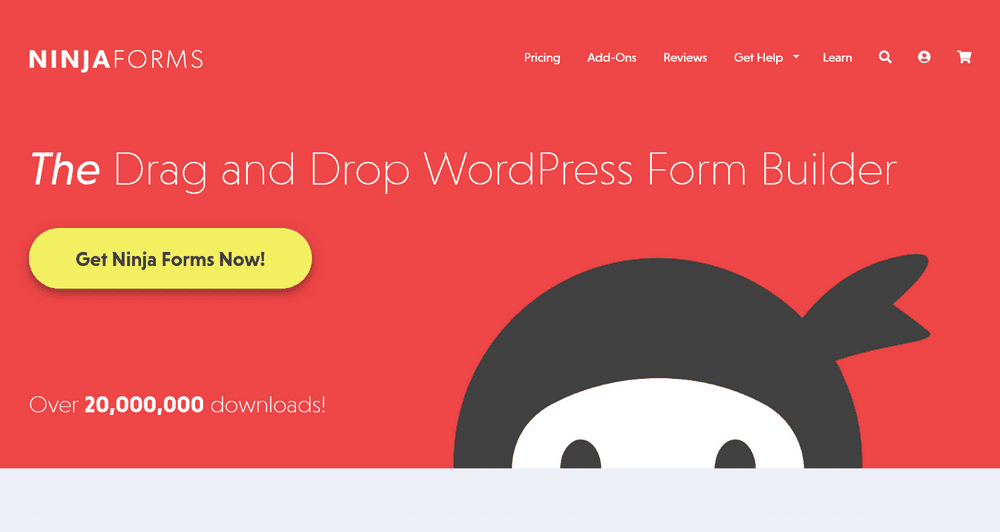
One of the most popular forms plugins for WordPress, Ninja Forms is a great choice for any type of form. As an added benefit, you can send emails to anyone after a form is submitted.
This includes admins, other users, email addresses, or the submitting user themselves.
8. Formidable Forms
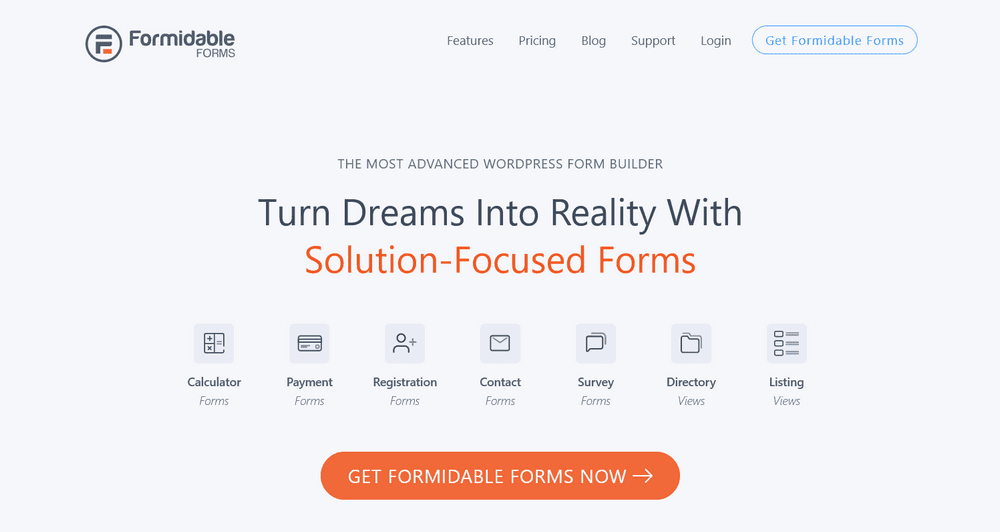
A powerful forms plugin, Formidable Forms also lets you set up email notifications and autoresponders. You can use conditional logic to send specific responses depending on certain variables, send post-submission emails when users fill out a form, and automatically reroute emails to the right department.
9. Newsletter

Newsletter is a simple email newsletter plugin that is very easy to set up. It has a ton of powerful automation features, including the ability to send post notifications and multiple series of emails.
With post notifications, you can send custom post types, You can also schedule when emails will go out, daily, twice a day, monthly, and so on.
With autoresponders, you can create welcome messages, follow up on purchases, create email courses, and target emails by list. Then, view a detailed report on the open/click results.
10. Moosend
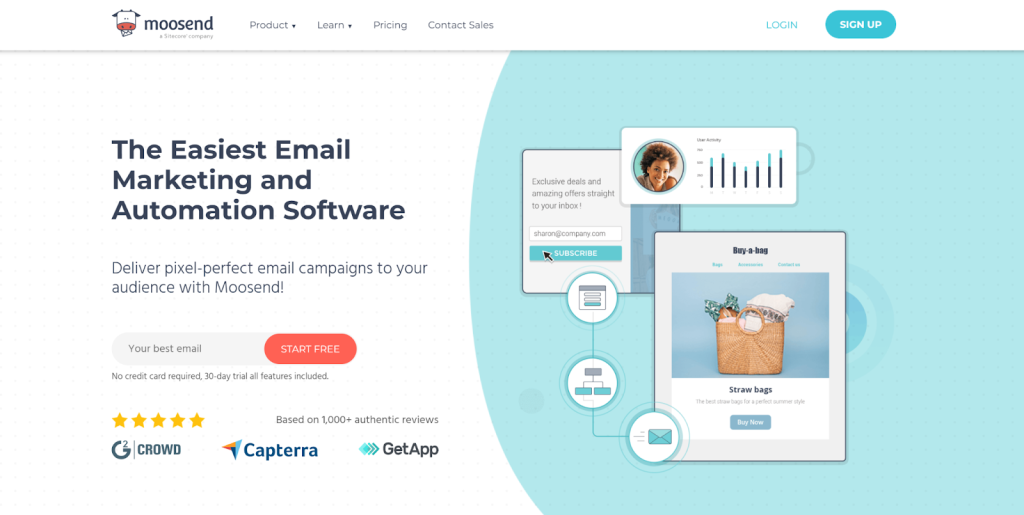
Moosend is among the best email autoresponder tools on the market. Thanks to intuitive controls, you can use it even if you’re a complete novice.
The visual workflow automation builder and the pre-made automation recipes will help you create your sequences in minutes. In fact, you get more than 30 templates let you get started right away and save time.
There are various triggers and actions to select from, while it’s also possible to add “And/Or” expressions in your automation steps.
The workflows you create can also be shared among team members to enhance collaboration.
11. Sendinblue
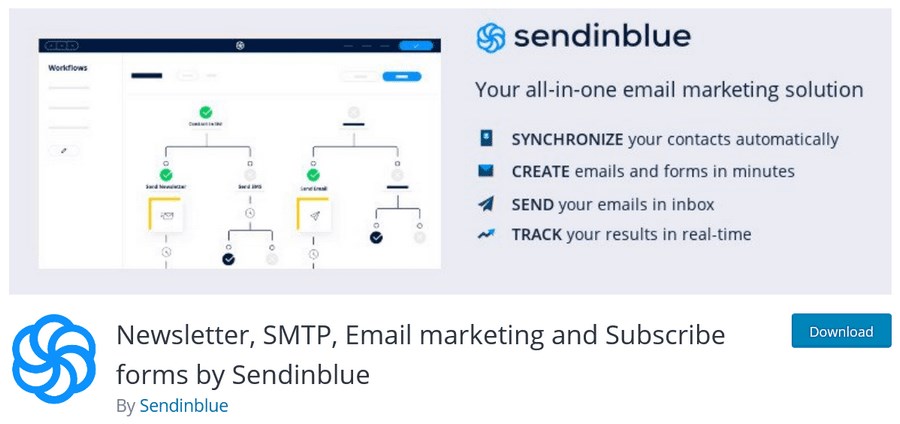
Sendinblue is an all-one-one solution to everything involving email marketing. On their free plan, you can send up to 300 emails a day to an unlimited number of contacts.
Sending welcome emails is easy and can be used to drive sales or promote content. You can also send abandoned cart reminders, birthday/anniversary messages, and other date-based emails.
12. Mailchimp
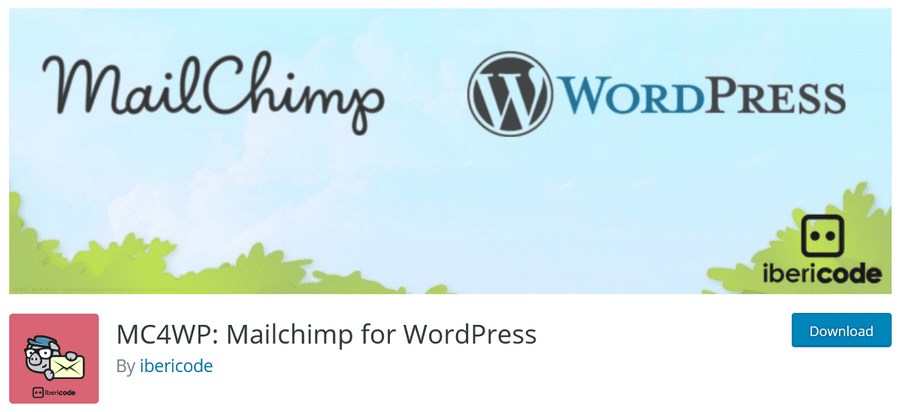
Mailchimp is one of the most popular email marketing companies and for good reason! Mailchimp has a great combination of features and ease of use.
Their marketing automation tools are very powerful and let you automate virtually everything. You can send abandoned cart emails, target customers based on behavior or previous purchases, welcome new subscribers, and more. The options are nearly endless.
13. MailPoet
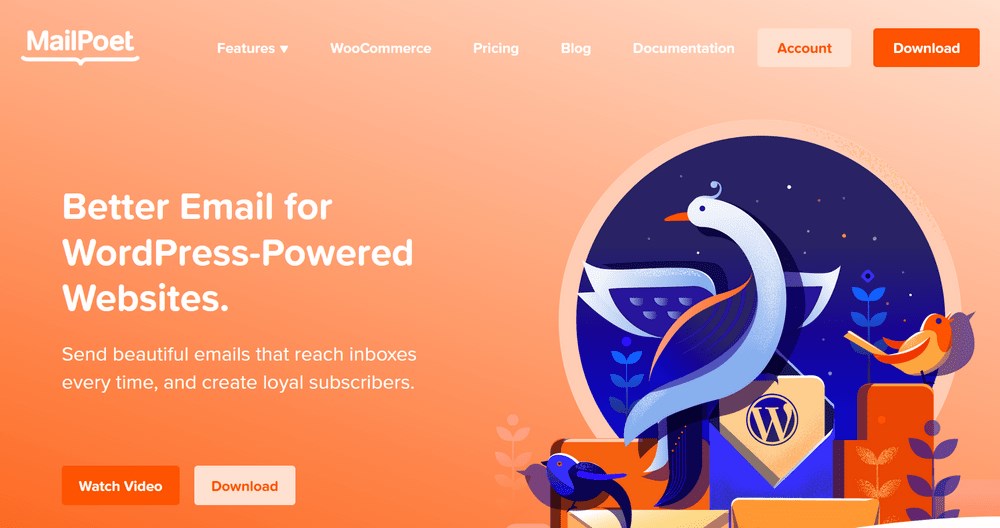
MailPoet, recently acquired by WooCommerce, is a great option if you want to manage your email marketing campaigns entirely within WordPress. It comes with all of the features you’ll need to create post notifications, welcome emails, coupon emails, and more.
Best of all, it’s completely free to download and test out. You only need to download their free plugin.
In our walkthrough below, we use MailPoet to set up an autoresponder.
14. Hustle
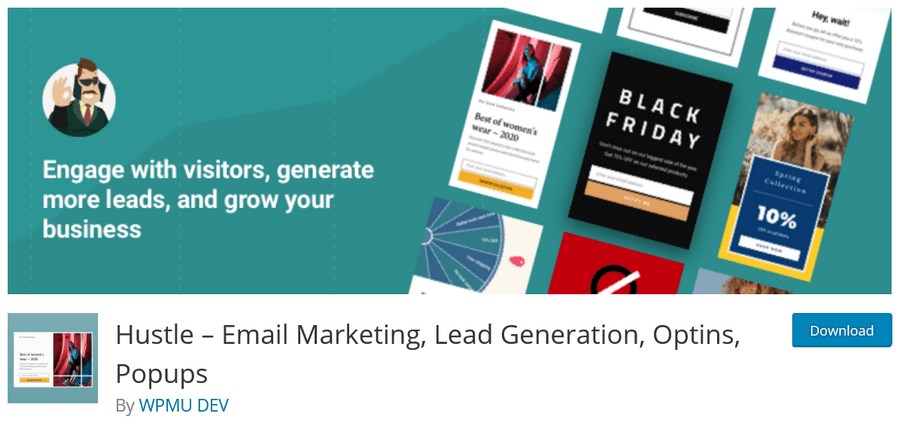
Developed by the well-known WordPress development company WPMU DEV, this plugin is designed to help you build a mailing list and convert your site traffic into readers and subscribers. You can use optin forms, pop ups, and other features to grow your list.
Once you have gathered a visitor’s email, you can automatically send them welcome emails or a series of automated messages.
15. Bloom Email Opt-In Plugin
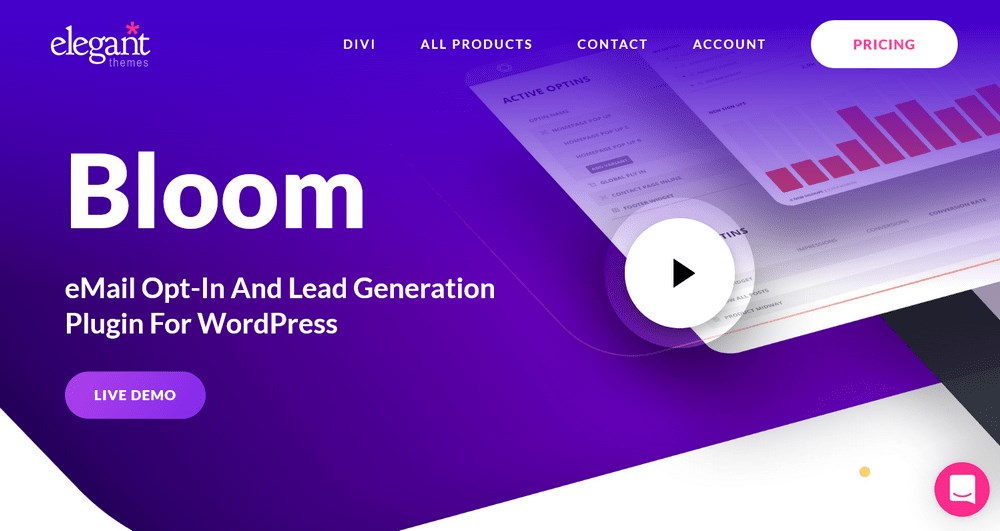
Bloom is a WordPress plugin that helps you generate leads and gather subscribers. You can target specific types of users, include or exclude certain content on your site, and use one of over 100 premade templates.
While Bloom doesn’t send any emails itself, it integrates with 19 different email marketing tools. These include Mailchimp, HubSpot, ConvertKit, MailerLite, and other well-known services.
16. AWeber
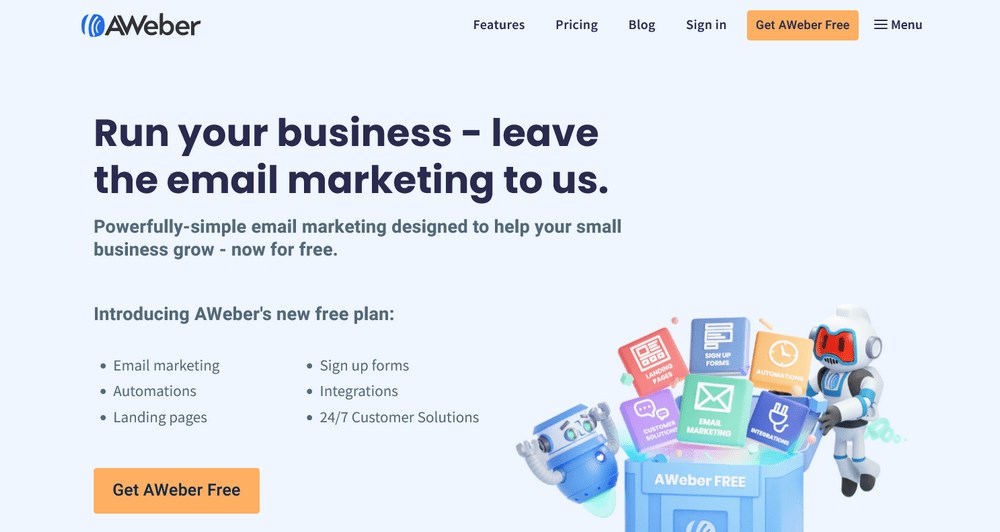
AWeber has provided a solid and effective suite of tools for over 20 years and is one of the oldest email marketing tools available. Their free plan comes with a ton of features, including sign up forms, integrations, landing pages, and automation.
You can schedule emails to send at the exact right time, welcome new contacts, send date-based emails like holidays or birthdays, remind users of abandoned carts, and upsell after a purchase is made. If you’re short on time, you can also use one of AWeber’s pre-built email campaigns.
17. ConvertKit
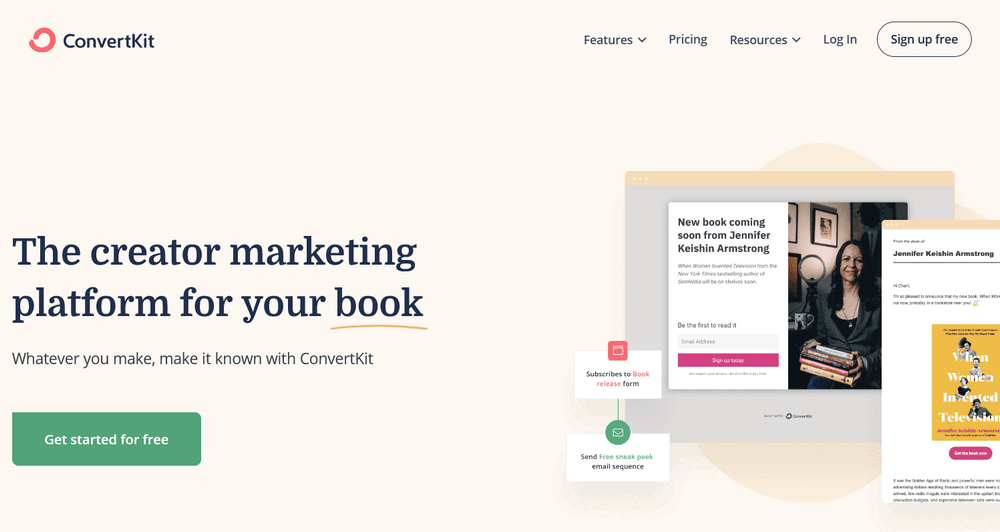
ConvertKit is an email marketing service aimed at content creators. It focuses on finding an audience for your content, monetizing that audience, and then making a living purely from your creative works.
Included in ConvertKit’s features are “Email Sequences”, which are essentially just autoresponders. You can create Welcome Emails, onboarding emails to introduce new users, abandoned cart emails, event emails to announce and maintain interest in upcoming events, and re-engagement emails for “cold” subscribers.
18. MailerLite
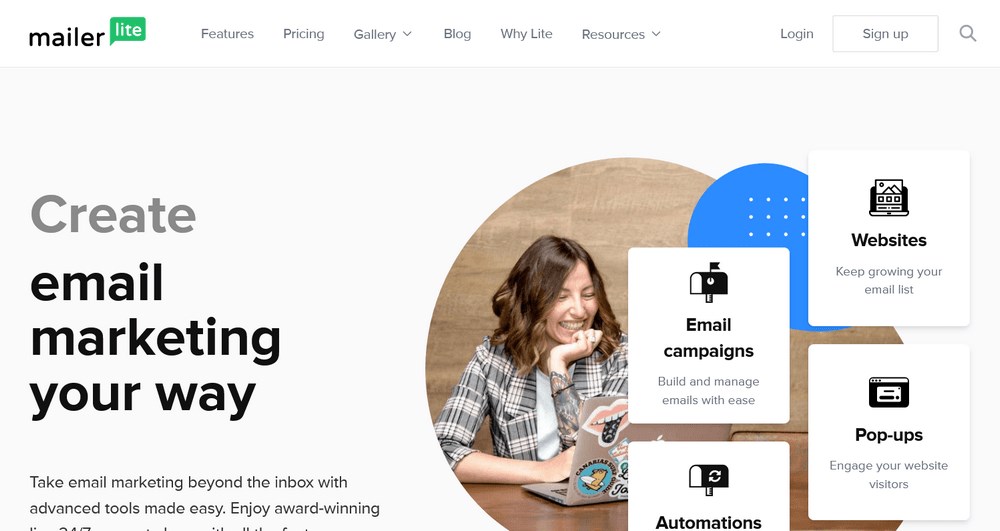
MailerLite is an integrated email marketing suite. With over a million customers, it’s quite popular!
It comes with a collection of different tools, including email campaigns, pop ups, and autoresponders. MailerLite’s unique automation designer allows you to plan the entire customer journey, choosing when certain emails should be sent out, the optimal time to send a discount deal, and more.
19. Sumo
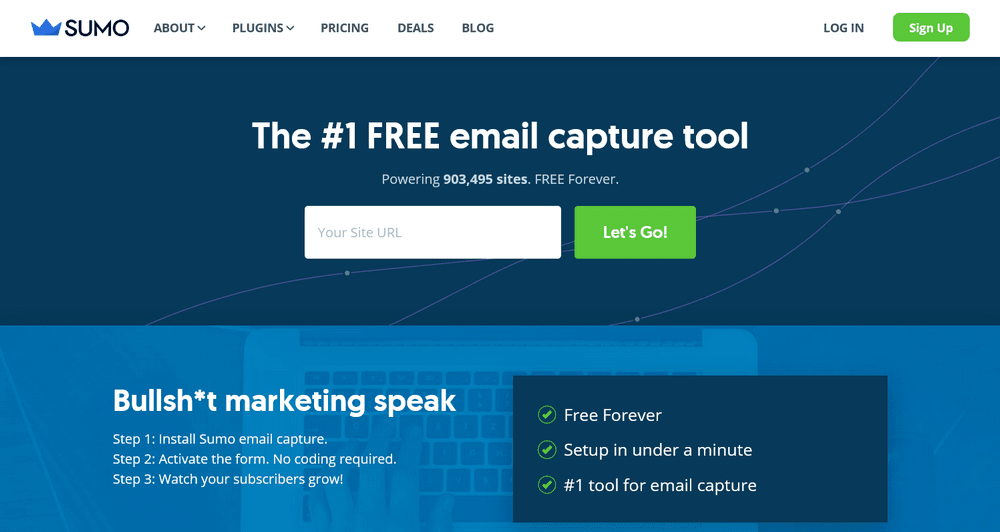
Sumo is a super simple email marketing tool. It cuts out all of the extraneous details and focuses purely on the most important thing, capturing your readers’ email addresses.
It has a large selection of other tools, many of which allow you to create autoresponders. These include coupon delivery emails, welcome emails, content upgrade delivery emails, and more. Everything is designed to be very easy to use, which is definitely a big plus.
20. GetResponse
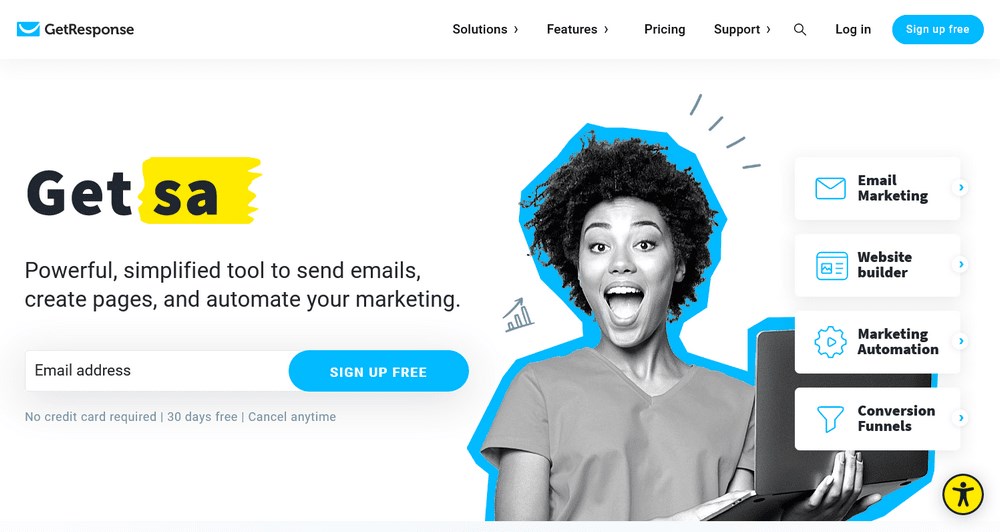
GetResponse has a collection of different marketing software packages. These include email marketing tools, landing pages, automation, and conversion funnels, to name a few.
When it comes to autoresponders, GetResponse lives up to its name. You can create a wide variety of different emails, customize the exact date and time they are sent, choose the days of the week they go out, and tons of other options.
21. Arigato
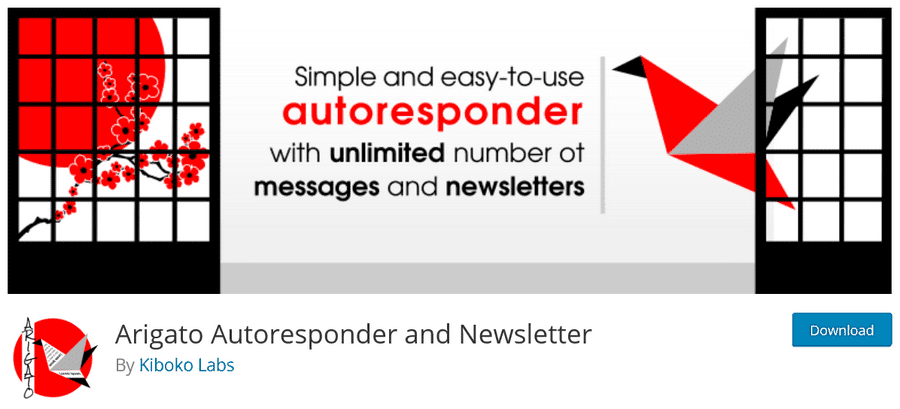
Arigato, which means Thank you in Japanese, is a very simple plugin that lets you add autoresponders to your site and send newsletters to your subscribers. It has all of the standard features you’ve come to expect in a plugin, presented in a simple, easy to use plugin.
22. Sendx.io

Sendx.io has powerful automation features that operate according to rules that you set up. You can create email drip sequences, send emails based on certain user activities, segment your audience, and more.
The service also comes with other useful tools, like easy access to 500,000+ royalty-free stock photos for your emails, a click heatmap, and a drag and drop email designer.
23. ConvertPro
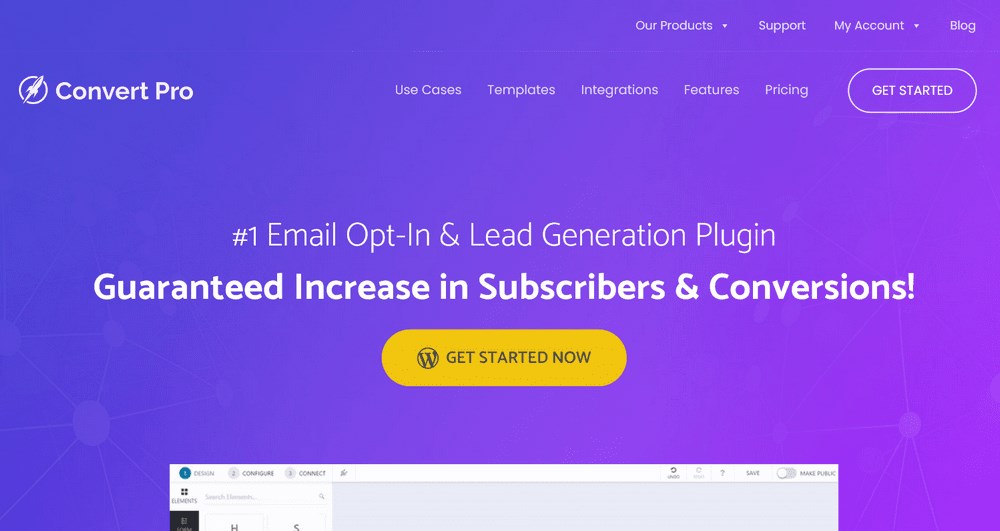
As a final note, let’s briefly talk about ConvertPro. While it isn’t free, ConvertPro does offer a ton of extra features that can help optimize your email marketing strategy. This lead-generation plugin works to increase your subscribers and conversions.
You can build any type of form that you like via a drag-and-drop editor, set up behavioral triggers, utilize exit intent popups, and more. Everything is also completely mobile-friendly.
Create an Autoresponder Using MailPoet
Now that we’ve covered some different tools for creating an autoresponder, let’s walk through creating one!
For this tutorial, we’re going to use MailPoet, as it’s free to use and integrates directly into your WordPress site.
Step 1: Download, Install, and Activate the Plugin
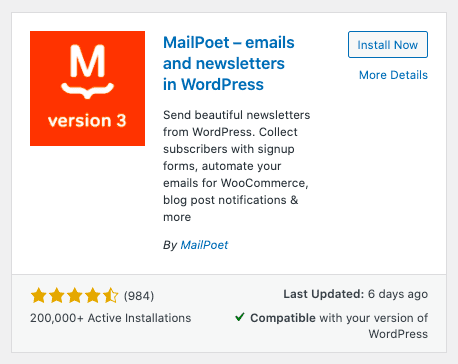
Under Plugins > Add New, search for MailPoet and click install. Then, activate the plugin.
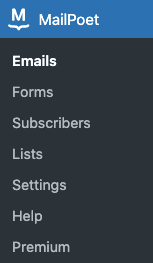
Step 2: Go to MailPoet > Emails
On your WordPress sidebar, navigate to MailPoet > Emails. Fill out the information in the Welcome wizard.
Once you do that, you’ll see a number of email types displayed. We are interested in the second and third items listed.
In MailPoet, there are two types of autoresponders: Latest Post Notifications and Welcome Emails. The first is based on when you publish content, while the second is based on when a subscriber joins your list.
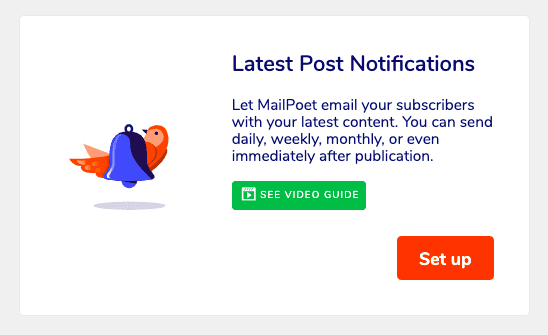
Latest Post Notifications: Email subscribers your content as it’s released. You can send these emails immediately after publication, or hours, days, or weeks later.
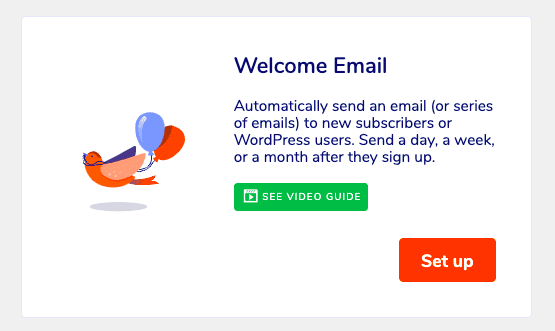
Welcome Emails: This feature lets you automatically send an email (or series of emails) to new subscribers when they join your email list. You can choose to send these emails days, weeks, or months after subscribers join.
For this tutorial, we’ll select the second option: Welcome Email. Click the Set up button.
Step 3: Schedule the Email(s)
Now you’ll see a list of three settings. You can customize when exactly this Welcome Email will be sent.
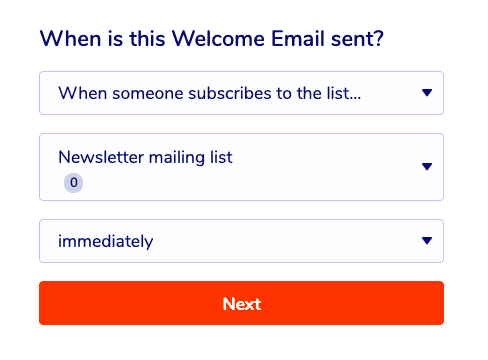
For the first setting, you can choose between two options:
- When someone subscribers to the list
- When a new WordPress user is added to your site

The first option lets you send emails to an email list, while the latter allows you to send emails to WordPress users.
The second setting lets you choose which list you want to send the emails to. If you selected the WordPress User option above, you’ll instead see a list of user types.
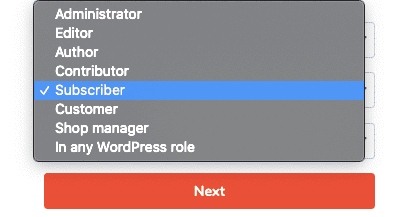
Finally, in the last field, you can set when the emails will go out, immediately, hours, days, or weeks later. If you choose any option other than immediately, you can input the exact number.

Once you’ve set everything up, click the Next button.
Step 4: Themes
Now you’ll see a large gallery of themes. These are designed for everything from real estate agencies to food bloggers.
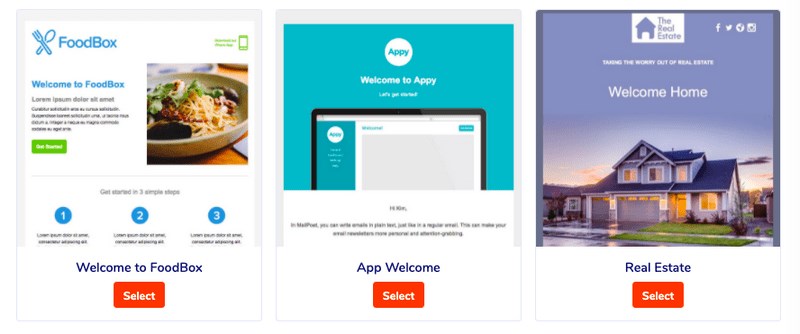
Step 5: Design Your Email
After picking a theme, you’ll be on the Designer page. Here you can drag and drop elements into your email. You can even send yourself a preview email.
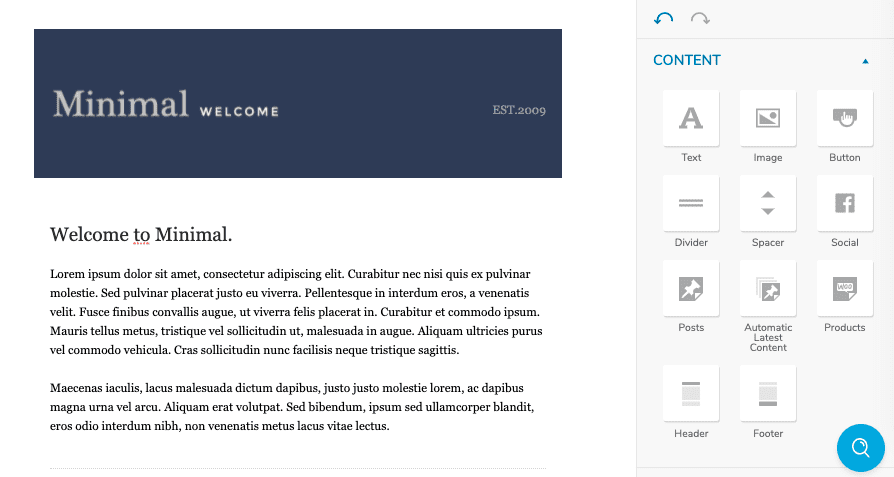
Once you’re done designing the email, scroll down to the bottom right corner of the screen and press the Save button and then click Next.
Step 6: Add the Final Touches
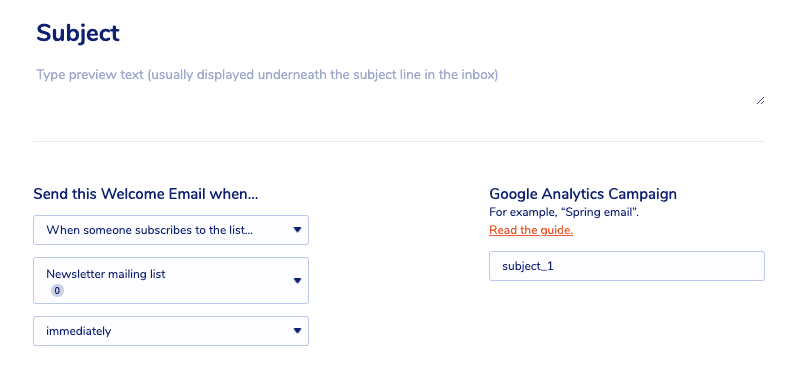
On the last page, you can write your email’s subject line, double check the autoresponder scheduling settings, and add your own sender and reply-to address. Once everything is set up correctly, press Activate.
And that’s it! You now have an autoresponder set up on your WordPress site.
Conclusion
You’re now ready to set up your own autoresponder! With 22 tools listed above, there is definitely one that matches your needs.
While the initial setup can be time-consuming, you’ll end up saving yourself a ton of time – and increasing your revenue, too. Trust us, it’s worth the investment!
What are your favorite autoresponder tools? And how have they affected your subscriber count, your bottom line, or your website as a whole? Share your secrets in the comments below!
Disclosure: This blog may contain affiliate links. If you make a purchase through one of these links, we may receive a small commission. Read disclosure. Rest assured that we only recommend products that we have personally used and believe will add value to our readers. Thanks for your support!
